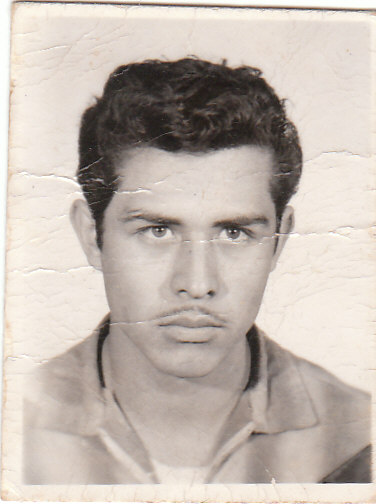TRANSCRIPTION
When and where were you born?
In Mexico; Zacatecas Mexico on June 16, 1945
What is your first memory about your family?
My whole family, my grandparents, there was a lot of us. It was a lot of people.
What were your parents like?
They were really good people
Where they strict?
No, no. We always knew our place, we were never destroyers
How many siblings do you have?
Thirteen; seven sisters and six brothers
How far did you get in school? And why did you stop going?
I finished the fifth grade, I had to stop going because there wasn't a sixth grade
So is that where everyone would finish?
Yes
How many people in your family worked?
Just three of us. Two of my brothers and me. My dad was always in the United States.
Where in the United States?
He would come to Texas, Lubbock Texas. He would come for money, we were really poor and he would do anything for us. He would come to work the fields and work in a factory farm. He would use a machine to milk cows
Did you talk to him a lot?
Oh yeah, I don't remember a lot. Well...he would always tell me that there was money in the hills and that Pancho Villa would hide the money in caves that were in the hills. He would always tell us about things like that.
Why did he tell you things like that?
Just to make conversation with me. He would tell us stories like that or he would tell us stories about the commandantes and the war. Zapata and all of those people.
Did he live through the Mexican Revolution?
No, he was born in 1913, so he was too young to remember any of it.
Did you hear stories about it?
Yes, that the bad people would go and bury the people alive. There was an old man, and they threw him down with all the dead people, and he cried "Atolito!"!," and then the people kicked him back in and they said, "Hechele hechele, que atolito!"
Who would do that?
The people from the revolution, the bad ones.
What was life like in Zacatecas?
It was normal, I was a campesino(a peasent or farm-worker depending on translation); I worked with agriculture. That was my first job. I worked in the labores since I was seven years old. Later, I would work in the molinos
How much did you get paid?
I worked for myself. And it was our job to do that. We would work for the things that we needed like food. I didn't get paid with money.
What was your normal day like?
I would work in the molinos-the mills. It was my routine to work in the mills.
Was life hard in Mexico?
Yes, because when it doesn't rain we have no business and there is nothing to eat. If it didn't rain there was nothing to mill. A lot of people would just quit because they weren't making money.
Was there a lot of poverty in Mexico?
Yes, a lot.
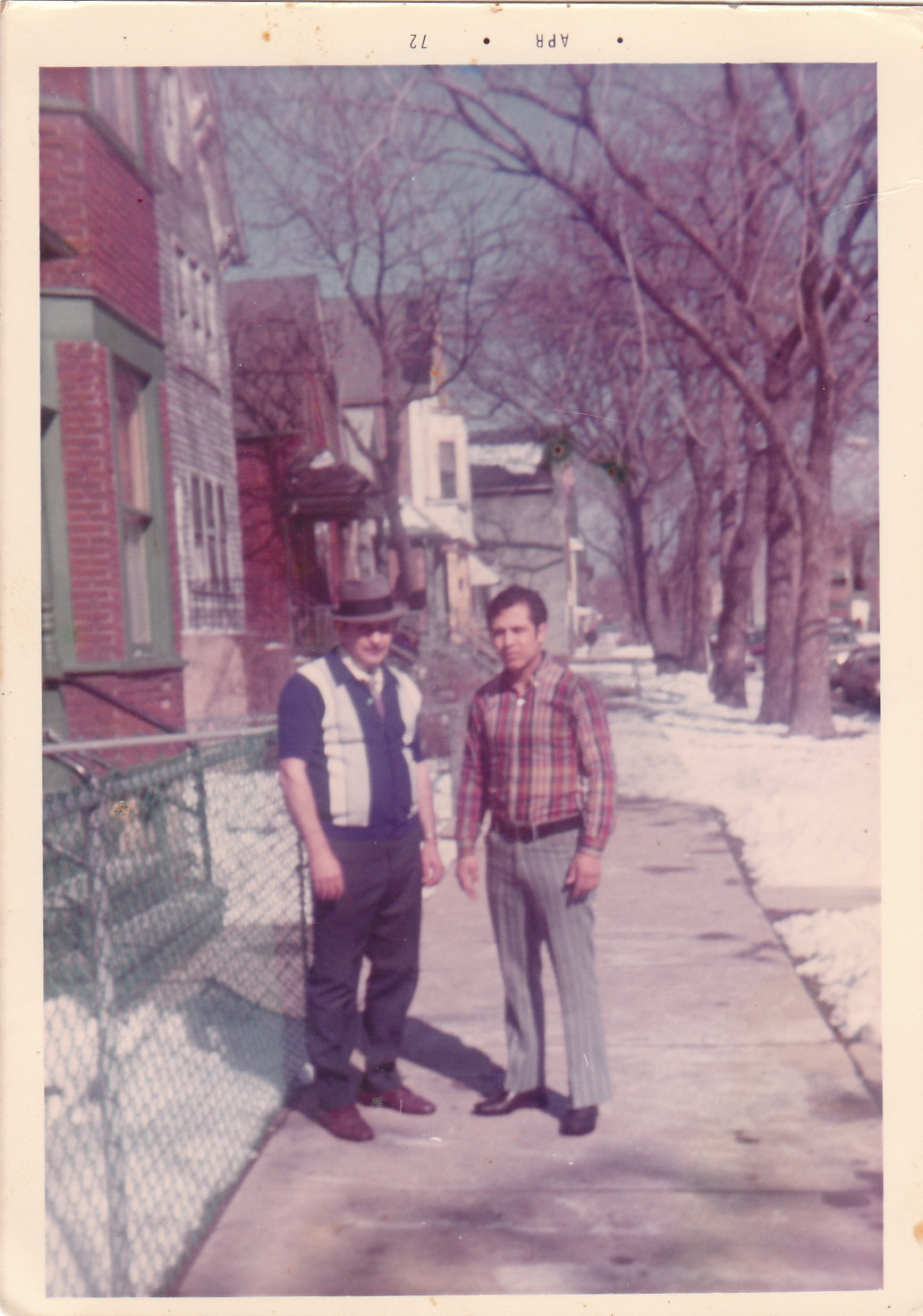
If you were alive then would you have agreed with the revolution?
Well supposedly if it was what they said it was to fight for the rights of people, of course I would be for it.
Do you still have family in Mexico?
Four sisters and two brothers in Juarez, and my mom lives in El Paso.
What happened to your dad?
He died of an illness but we never found out what it was. He died in 1982.
Is there one thing that happened in Zacatecas that you would never forget?
Uh...I got married (laughter)
Anything else?
No.
How old were you when you got married?
I got married when I was twenty two. I had known Carmen for five years before we got married. I meet her at the molino.
She was working there?
No she just went to buy the masa
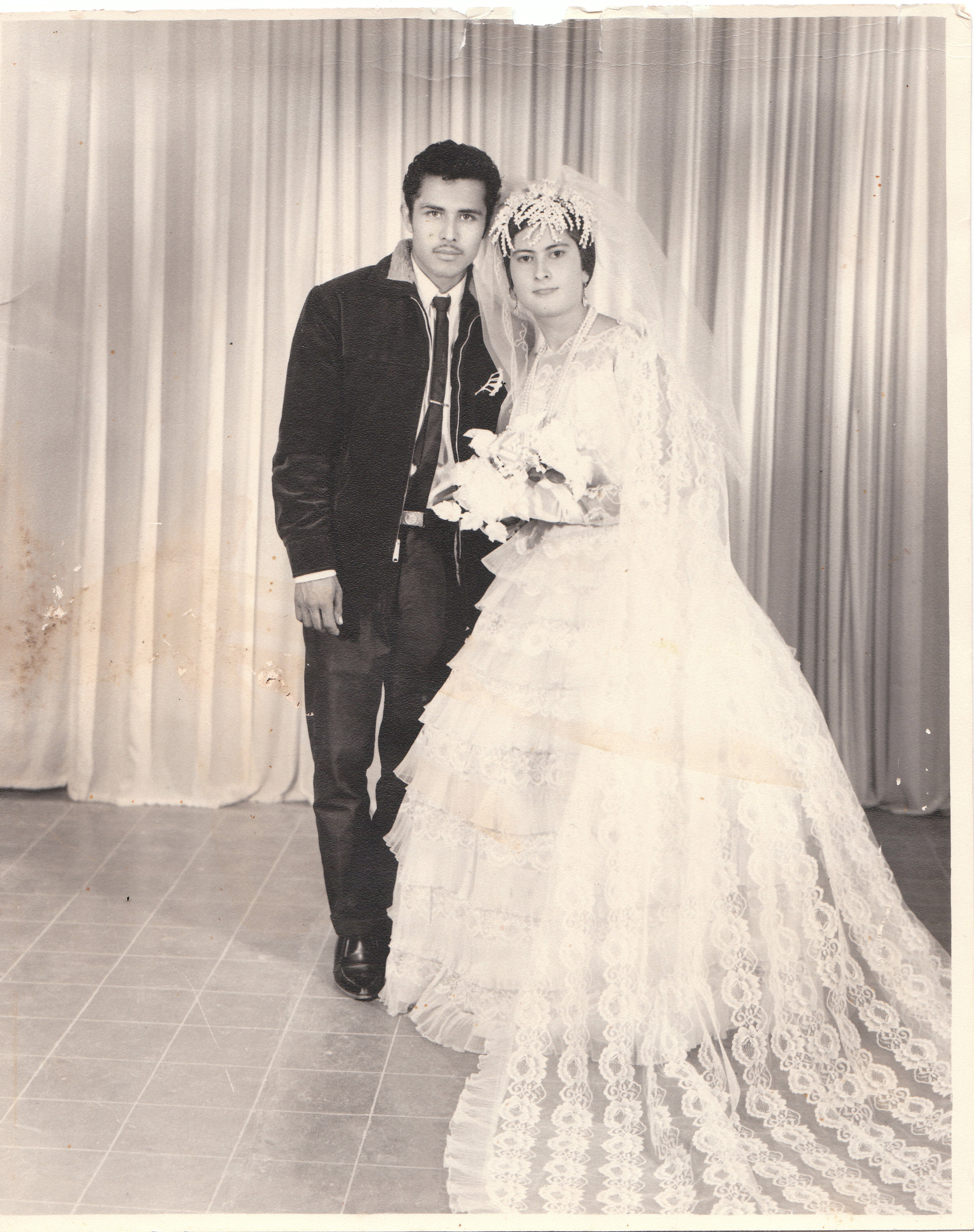
How old were you when you had your fist kid?
Twenty three. I didn't wait too long. My first born was Rosalva.
What made you want to come to America?
The necessity to try to have a better life.
When was the first time that you came to the US?
The first time that I came was in 1969. I came with my father in law
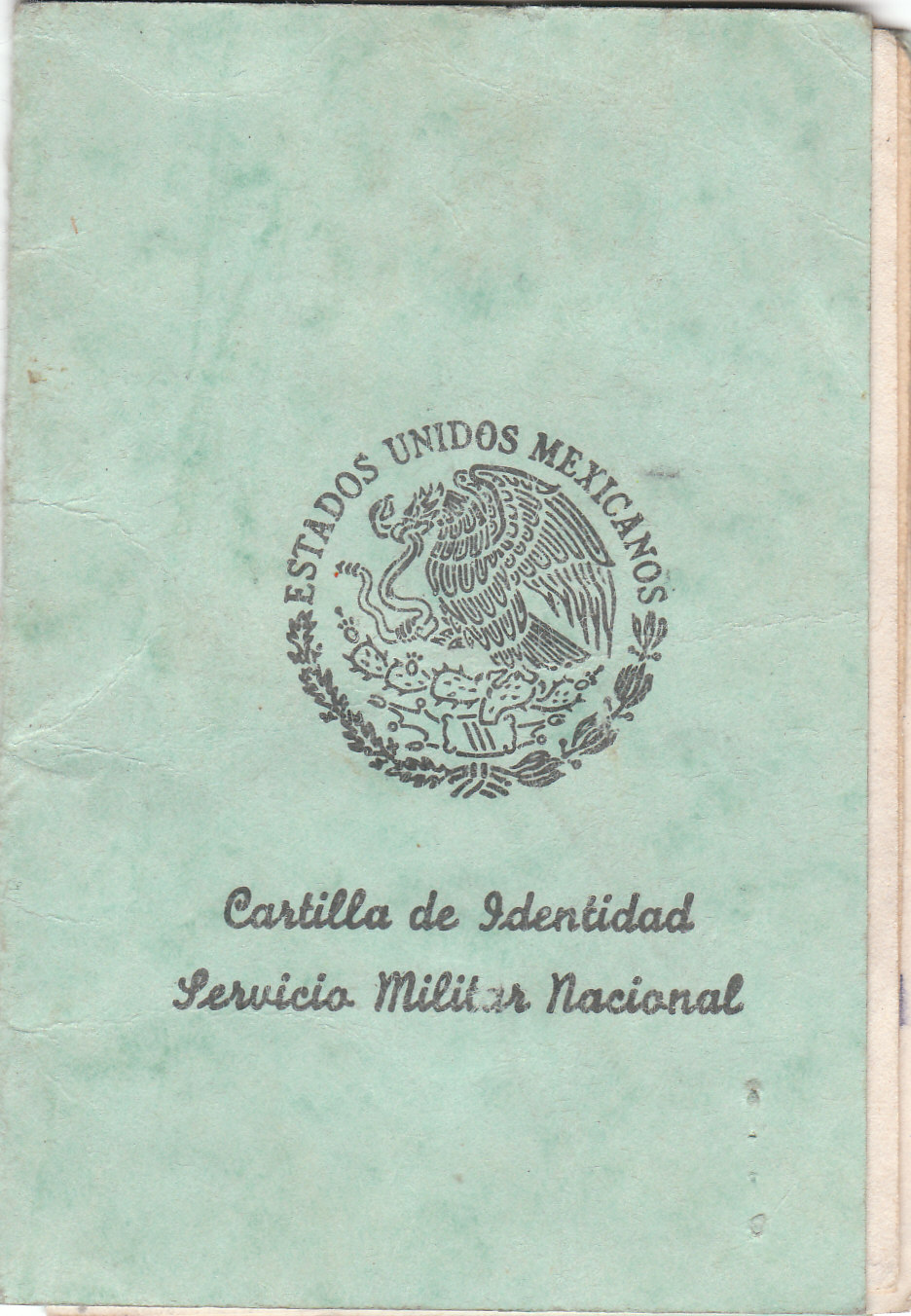
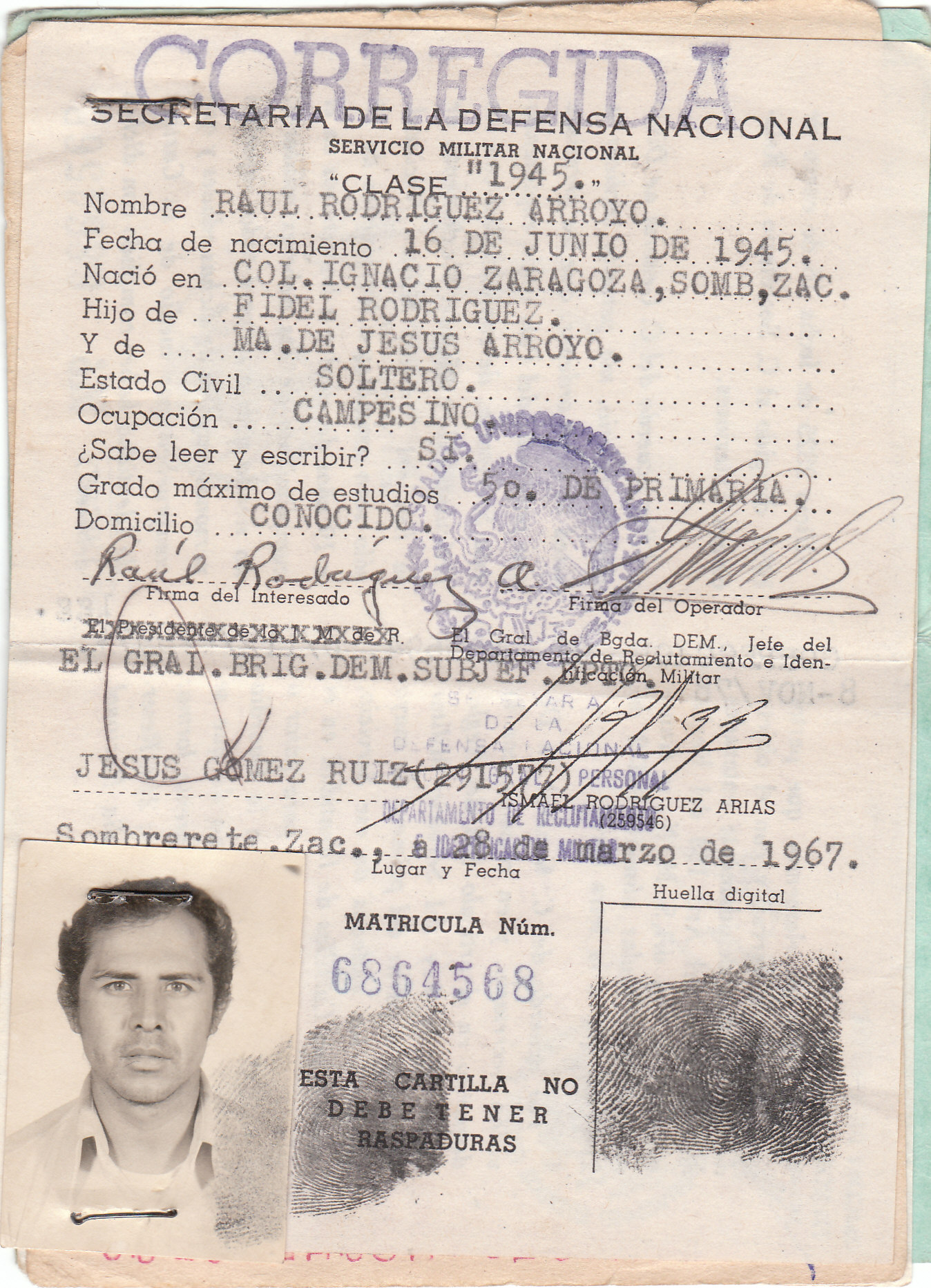
What was the trip like?
It was really bad, because I was dying. I was in the trunk of the car and I couldn't breathe, when they pulled over and let me out of the trunk, my father in law forced me to go into the car and he took my place in the trunk.
How many of the people were in the trunk with you?
Two
With who else did you come with?
We came with the Coyote in a car that had fifty people
Did you pay the coyote?
Yes, I paid $225 ($1,328 today).
Pesos?
No, dollars.
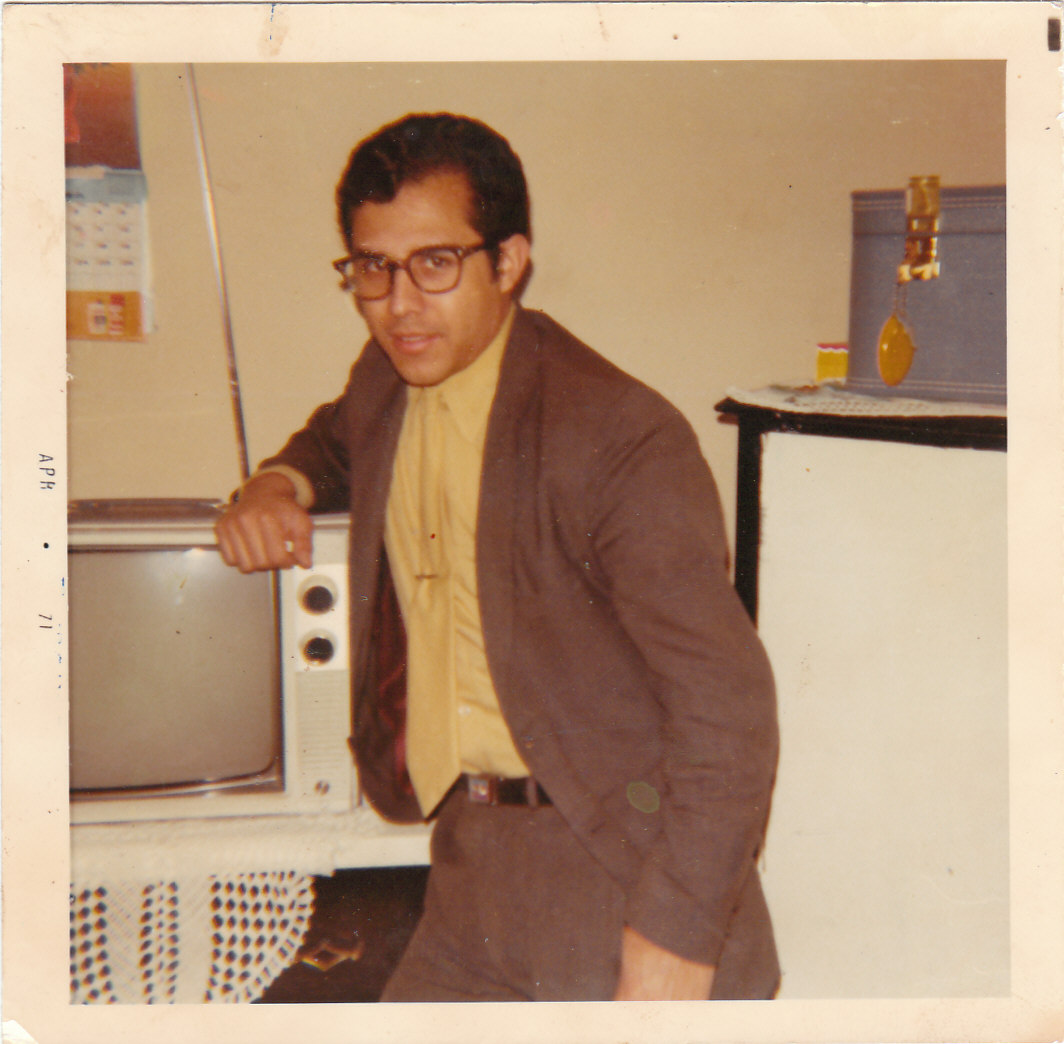
How did you get the money for it?
A loan. They lent it to me. Some of my wife's cousins lent me the money. Well actually, they paid for me.
What city did you get to first?
Chicago. Straight from Mexico to Chicago. Well first we stopped in El Paso, then we drove to Chicago
Why Chicago?
Because my wife's cousins live there.
How did they get here?
They had already lived there.
When you first came to America were you scared about coming?
Yes, because I had never been here. I didn't know how life was. When I got to the first house that I stayed in in the US, when I would hear the trash men I would hide. They would speak English and I would get scared so I would go hide. They would tell me 'Don't be scared, it's just the trash men." Then I would tell them that I thought it was the migra.
What did you do in Chicago?
I worked in a factory making rifles for the Vitenam War.
What year was this?
1970 or 1971
What kind of people did you work with?
I worked for Puerto Ricans, but I worked with a lot of black people.
Did you learn any new Spanish from the Puerto Ricans?
No, they learned from mine!
How much did you get paid?
I started with...very little. $1.90 an hour but I worked and made bonuses. It would come out to about five hundred a month.
Was it an assembly line?
No, well kind of...it was three of us working together. It was three to five of us and we would help each other.
What did you wife do the whole time you were away?
I don't know, you have to ask her.
How did she do it money wise? Did she work?
No, I would send her money. I would send her one hundred dollars.
Did you go back to Mexico that time?
Yes, I lived in Chicago for year, then I went back to Mexico for my wife.
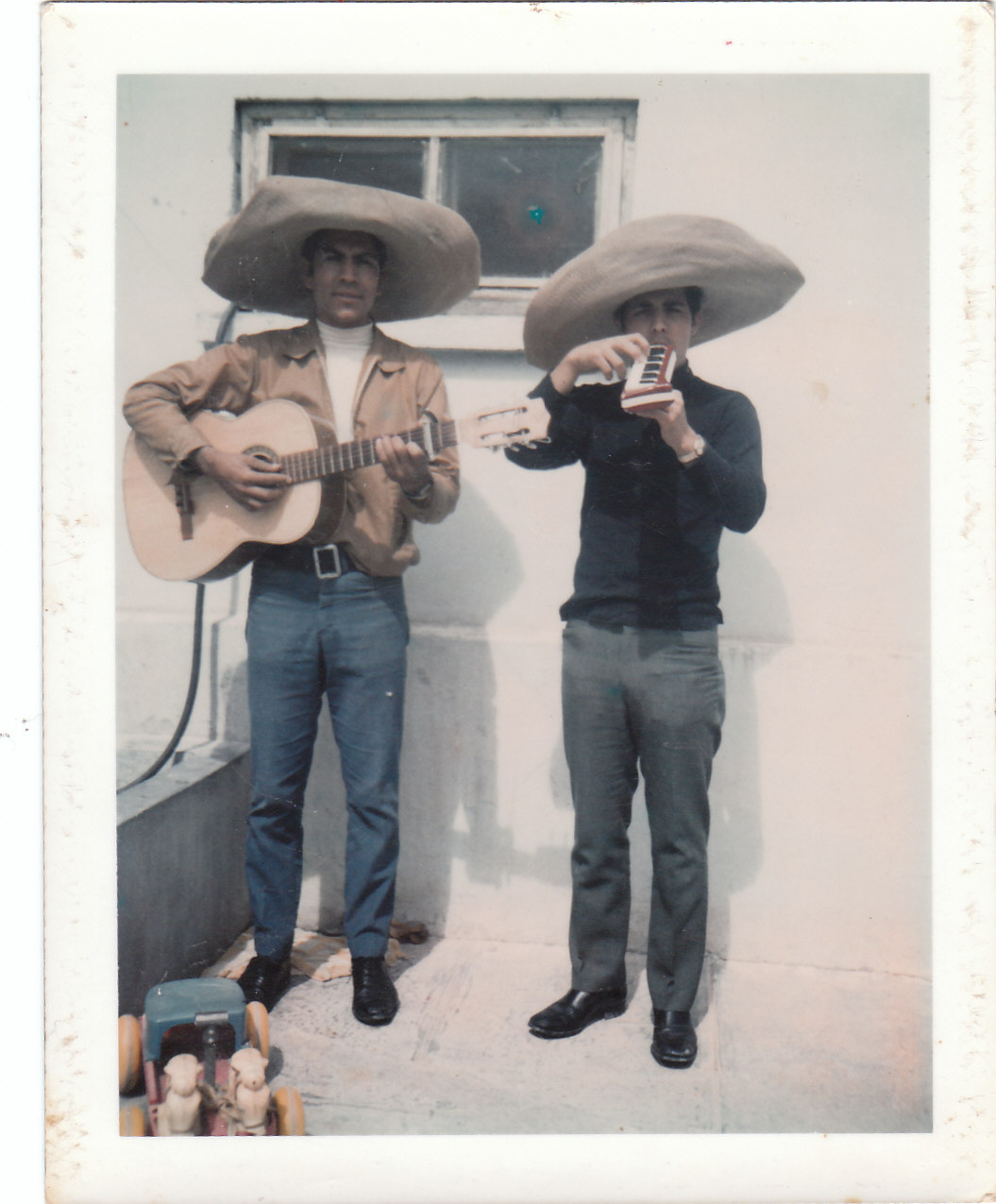
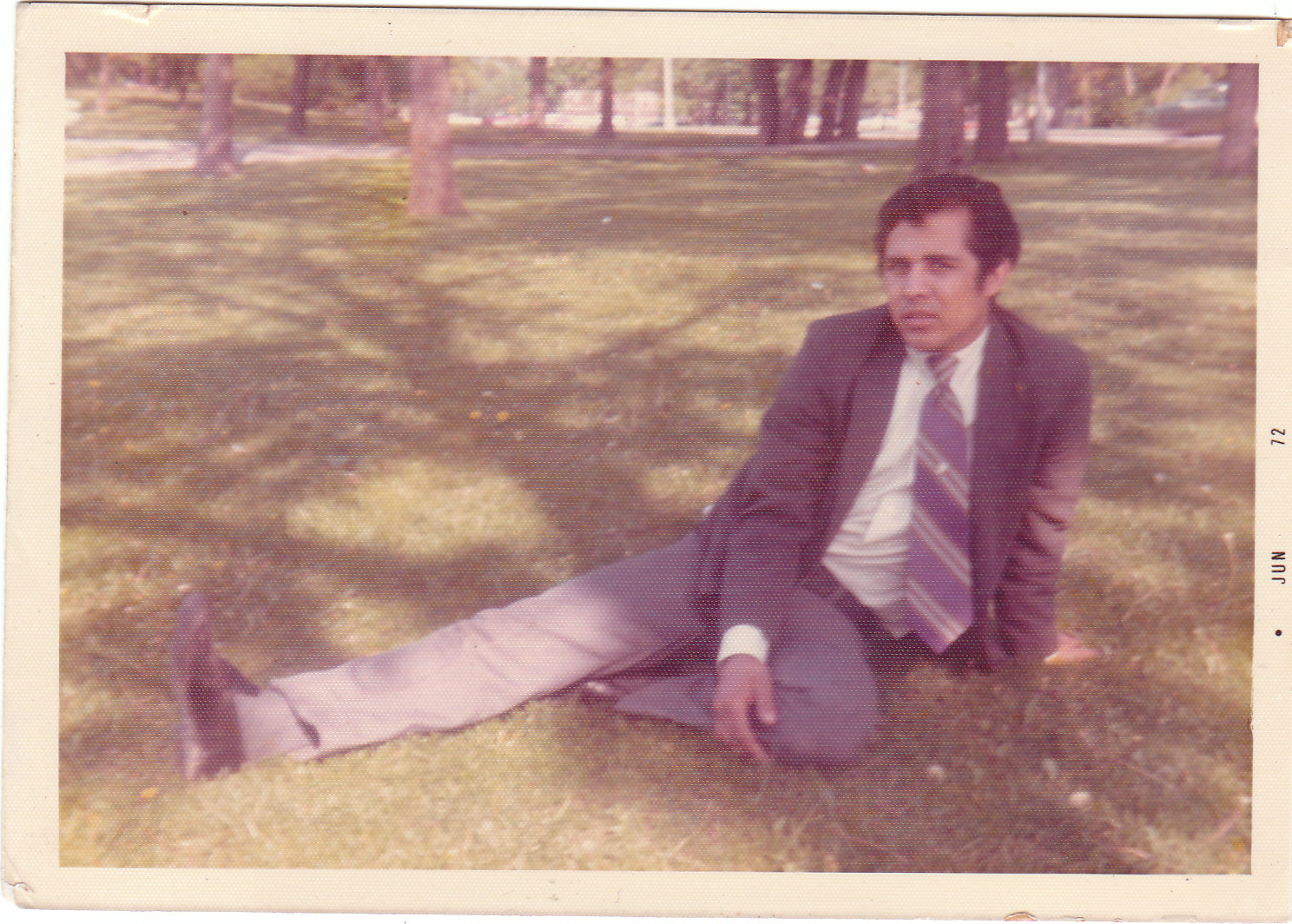
How did you go back to Mexico?
In a plane. I flew from Chicago to El Paso and then we took the bus to Zacatecas.
You only had one kid then?
First Roslava was born in 69, then I went to Chicago by myself. Then I came back and my second child was born in 70, and then I took my wife and my two kids with me to Chicago and that was where my third was born. And we stayed in Chicago until 1973.
When you went back to Mexico how long were you there?
When I went back the first time I stayed in Mexico for six months then I took my family back with me. After that we lived in Chicago for about five years, then we went back to Mexico. My third kid was born in Chicago, so when we went to Mexico we had to wait for our papers. We were there for five years waiting for them and that was when my son was born. Back then, if your kid was born in the US they would give the whole family papers.
When you moved back to Mexico both times, what did you do?
The same thing. I worked in the molino.
The second time you went to Chicago you had the same job?
Yes.
How many years did you spend in Chicago in total?
Six years.
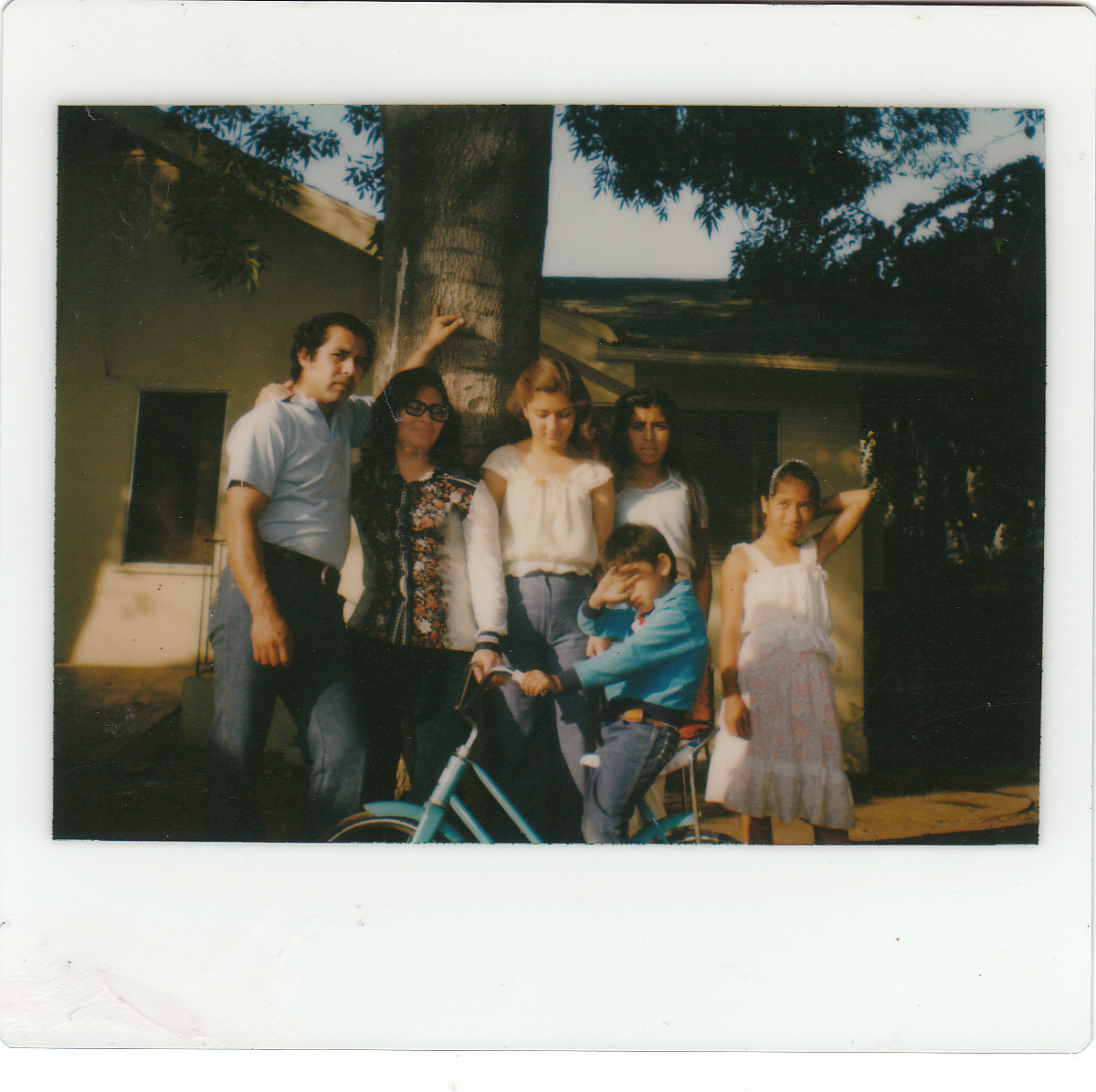
Why did you leave?
That was when I went back to Mexico because we were trying to fix our papers. And we were there for five years waiting for our papers. We moved back to Chicago after we got our papers, but I didn't like it so I moved.
Why did you move?
Because there was no work and it was really ugly over there, there was a lot of destroyers. The apartment we lived in had a lot of destroyers. A lot of houses got broken into. And then I decided to move to California.
How many of your kids were born in Mexico?
Three. When we were waiting to get our documents my first son was born
When did you become a legal citizen and I did you feel?
I became a legal citizen in 1980 and I felt nervous!(laughter)
How many times did you have to come before you became a legal citizen?
Three times
Were you ever deported?
Yes, one time. Well I don't know if they deported me but they threw me out. They left me in Chihuahua.
Can you tell me the story?
When we were in Chihuahua it was really dark, one man told someone to let him go to the restroom, and then the man told the bus driver to give him a chance to get off of the bus and go to the restroom. One of the bus drivers told another guy in charge to let them go, and then the man said "Ok, let them go it's already dark anyway." When they let the man out, I told the man, "hey, could you give me a chance to go too?" "Ok, hurry up! Don't take long" And then we went behind the bus and when he wasn't looking we just ran. We were running and running and then since it was so quiet all we could hear was the car going vroom vroom, and then some one screamed out "Let's go!" and we just kept running and running. Then they said "Ay, ya se pelaron los cabrones!" (The bastards got away already). They got me in El Paso, the bus was going into Mexico. I needed to go to Juarez because that was where my family was. When we passed by Juarez, the bus stopped and a lot of people were jumping out of the windows, but a lot a people didn't get to get out. So we just kept going walking or hitching a ride. The old man got lost in a little town that we passed by. The man told me that he had family in that town and he was going to go look for them. I went to a bus station from there, and I slept like a chicken, and in the morning I got up and I left and went to a street where I had heard that there was a lot of truck drivers, then I met a man who said he was going to Juarez so I asked him for a ride. He left me far from the house but I didn't care because at least I was in Juarez, so I went walking to the house.
Why did you go to California?
Because I talked to my uncle and he told me to go over there. Actually he was my cousin, but we called each other uncle.
Were you close to him?
Well yeah, he was my cousin and we always did things together when we were younger. We would play cards, we would do so many things. Well, over there there wasn't much to do, so we would play in the dirt-we would play cars with irons.
What kind of job did you have in California?
I worked in a factory making furniture. First I was a furniture maker, and then I was a furniture painter.
What did you get paid then?
Well I started at $3.35 an hour in '81 and then I started at $3.60 an hour at another place and then I stayed there until I was making $7.00 an hour. I made more as a painter
How many years was that?
About five years, when I was the furniture maker I worked for a year, but then I became a furniture painter.
Did your wife work?
Yes, she worked at Grand Hotel as a housekeeper.
Who took care of the kids?
Themselves. They were already older by then. I think my son was about six or seven, and my daughters were already in high school which was right across the street so it was easy for them to get to and from school.
Where in California did you live?
Santa Ana.
Did you like California?
Yes, but it was too expensive
How long were you in California?
Eleven years
When did you form your band with your family?
My son had a studio and we would use it to record songs. We did it once in a while, whenever they would come by
When did you start playing the guitar?
When I was about thirteen. I had to teach myself
What can of music did you like?
Rancheros, boleros.
What was you favorite?
El Bolero Ranchero..
Why did you come to San Antonio?
Because the life was easier here than it was in California, everything was cheaper; the rent is what made it difficult, the food is the same. Over there you could never buy a house, and over here we saved up money.
Why San Antonio?
Because somebody had told us that it would be good to move over here. Amador told me that everything was cheaper here and that he was going to come over here with his brother and brother-in-law, and that is why we came. When my daughters came they liked it so they all came too.
Where did you first work?
In construction
When did you start working with Avis?
Five months after I lived here I started working for Avis.
How did you start working on cars?
I started in California but they transferred me to San Antonio. I had been working for Avis for six months before I came to San Antonio but they told me that there were no openings, but to come and apply and when there was an opening they would call me. I applied and I started working in construction, and when they had an opening they called me.
How long did you work at Avis?
Eighteen years.
How did you feel when you were let go?
Sad. I wish I could still work there, I was really comfortable there.
How much did you get paid?
They started me off five dollars an hour and when I left I was at $14.75.
Do you like it in the US?
Yes, I feel safer.
How do you feel about Mexico today?
It's worse. Everything, it's worse than ever. It's worse than before, all the corruption and all the killings.
Was there ever a time that you wished you were back in Mexico?
No. Not even to visit would I want to go back. It's terrible!
What do you think has been your greatest accomplishment?
Coming over here and giving my kids something that I didn't have. I came for my kids, and I think I have done everything that I can for them. I think they have had a better life than I ever did, and that makes me happy.
Is there anything else you would like to add to this interview?
No, I'm already done with the commentaries.
